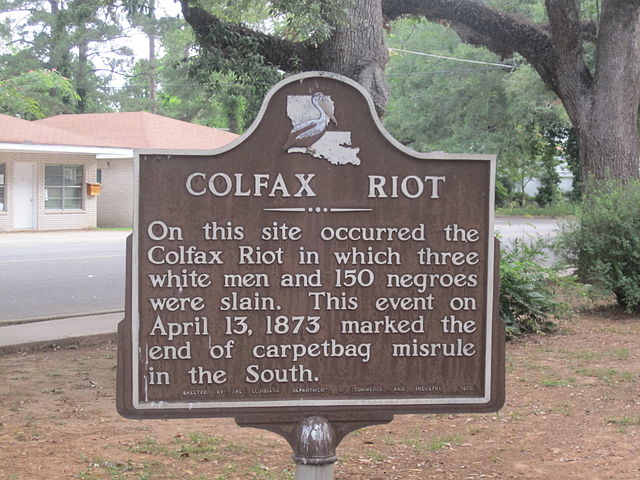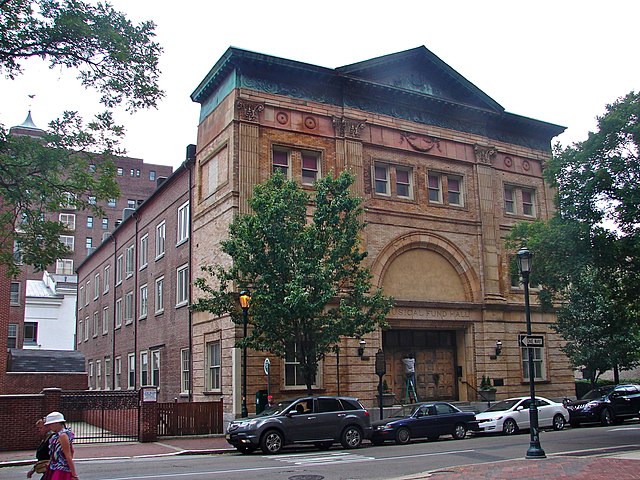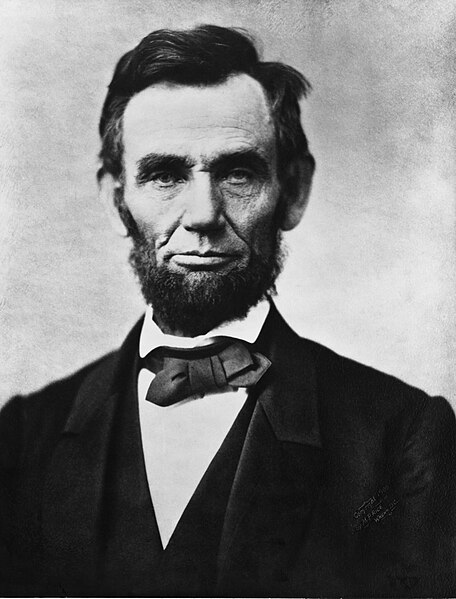In the history of the United States, carpetbagger is a largely historical pejorative used by Southerners to describe allegedly opportunistic or disruptive Northerners who came to the Southern states after the American Civil War, and were perceived to be exploiting the local populace for their own financial, political, and/or social gain. The term broadly included both individuals who sought to promote Republican politics, and individuals who saw business and political opportunities because of the chaotic state of the local economies following the war. In practice, the term carpetbagger often was applied to any Northerners who were present in the South during the Reconstruction Era (1865–1877). The word is closely associated with scalawag, a similarly pejorative word used to describe native white Southerners who supported the Republican Party-led Reconstruction.
1872 cartoon depiction of Carl Schurz as a carpetbagger
A cartoon threatening that the KKK will lynch scalawags (left) and carpetbaggers (right) on March 4, 1869, the day Horatio Seymour, a Democrat, will supposedly become president. Tuscaloosa, Alabama, Independent Monitor, September 1, 1868. The cartoonist had actual local politicians in mind. A full-scale scholarly history analyzes the cartoonː Guy W. Hubbs, Searching for Freedom after the Civil War: Klansman, Carpetbagger, Scalawag, and Freedman (2015)
Historical marker in Colfax, Louisiana that celebrates the Colfax massacre (a mass murder of dozens of African Americans) as "the end of carpetbag misrule in the South." Erected in 1950, the sign was removed in 2021.
History of the Republican Party (United States)
The Republican Party, also known as the GOP, is one of the two major political parties in the United States. It is the second-oldest extant political party in the United States after its main political rival, the Democratic Party.
Musical Fund Hall at 808 Locust Street in Center City Philadelphia, where the first Republican nominating convention for president and vice president was held from June 17 to 19, 1856
Abraham Lincoln, the first Republican President (1861–1865)
African-American members of the United States Senate and the United States House of Representatives: Sen. Hiram Revels (R-MS) and Reps. Benjamin Turner (R-AL), Robert DeLarge (R-SC), Josiah Walls (R-FL), Jefferson Long (R-GA), Joseph Rainey and Robert B. Elliott (R-SC), 1872
Ulysses S. Grant was the first Republican president to serve for two full terms (1869–1877)







